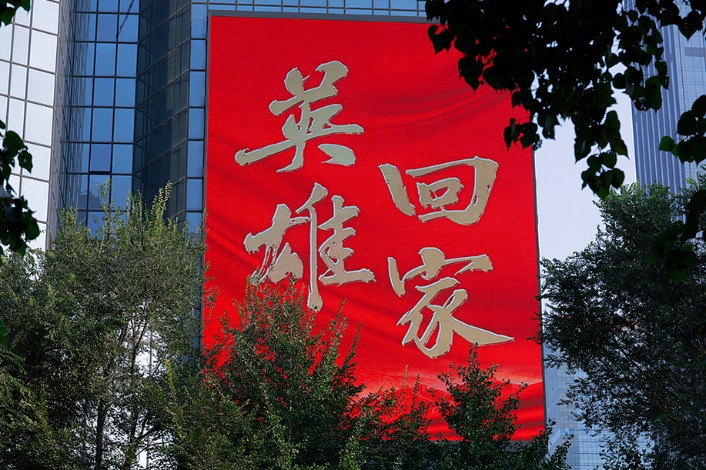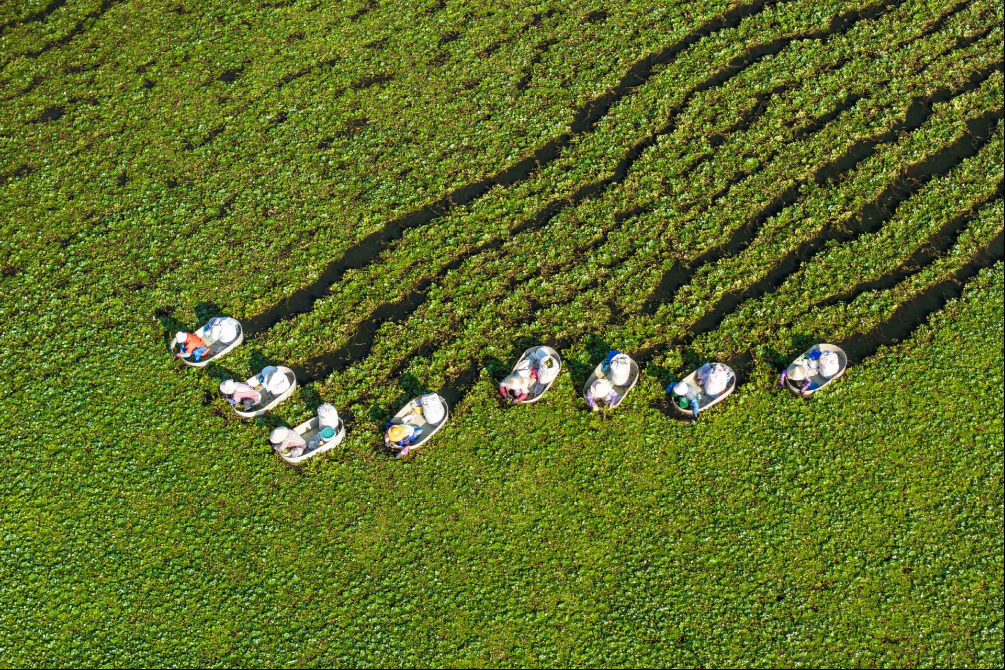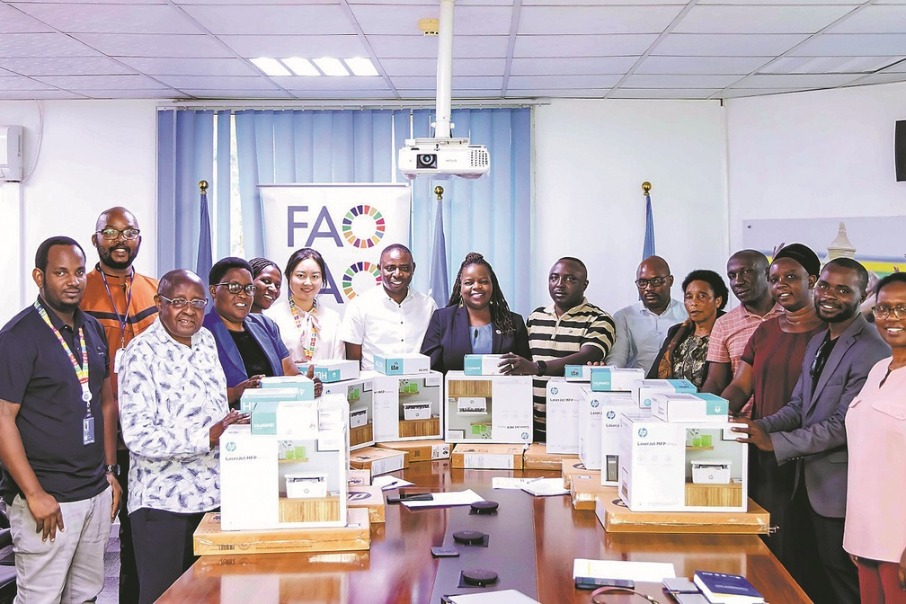Meeting paves way for high-quality development


Reviewing the country's economic performance in 2019 and analyzing the economic situations at home and abroad, the Central Economic Work Conference, which concluded last week, gave an indication of China's macroeconomic policies and development priorities for 2020.
Despite the challenges brought about by the fast-changing economic situations at home and abroad, the top leadership reached a consensus at the conference that China will prioritize "stability" in order to improve people's livelihoods, promote flexibility in monetary policy, strengthen countercyclical policy regulation, control the pace of financial deleveraging and maintain a healthy financial environment.
An analysis of the CEWC reports since 2014 shows that, despite China facing growing downward economic pressure and global economic prospects being uncertain, the country's monetary policy in 2020 will remain moderately loose. The wordings of the CEWC reports for both 2014 and 2018 were similar to this year's, and the central bank took steps to increase liquidity in 2015 and 2019.
On the other hand, since the CEWC reports from 2015 to 2017 didn't contain such wordings, China adopted a moderately tight monetary policy in 2016, 2017 and 2018. Judging by this, we might witness a trajectory of "declining interest rates" in 2020.
However, this year's CEWC report for the first time proposes "scientific and steady countercyclical adjustment of macro policies", which suggests that, unlike 2014, interest rate cuts in 2020 are unlikely to bring in a flood of liquidity. Although the 2018 CEWC report had also mentioned strengthening countercyclical adjustment, this year's report puts special emphasis on strengthening countercyclical adjustment which, while making monetary policy management more difficult, will reduce market expectations of an excessively loose monetary policy to prevent the formation of new bubbles in the property sector.
This year's CEWC report mentions the task of preventing financial risks as the third of the "three major battles". Instead of "structural deleveraging" as last year, this year's report uses different wording, stressing the priority is to keep "the macro leverage ratio basically stable". This change of wording shows that after addressing the problems of some small banks in 2019, the authorities are even more confident of overcoming risks in the financial sector.
The CEWC report proposes to change the direction of large, medium-sized and small banks, rural credit cooperatives and other financial institutions, emphasizing that large banks should continue to play the role of the "lead goose" in inclusive finance; small and medium-sized banks should mainly serve enterprises, special industries and local residents; and rural credit cooperatives must better serve the agriculture sector, farmers and rural areas.
This reflects the overall planning for the establishment of a financial system in which different types of banks will offer different types of services. Which means the focus of financial work in 2020 will be more on serving the real economy, and therefore enterprises can expect a friendlier financial environment next year.
Also, for the first time, this year's CEWC report highlights the "advantages of the superlarge market and the potential of domestic demand", saying China will tap into the potential of domestic demand, develop core technologies, further open up the economy and take proactive part in global governance.
Over the past 40 years, China has been both a huge labor market and a rich source of resources. But with the development of its economy and increase in its economic aggregate, China no longer enjoys absolute advantage in terms of costs of labor and natural resources, and some of the industries it dominated in the past have gradually shifted to other countries.
No wonder this year's CEWC report accords the most space to high-quality economic development, emphasizing the importance of making scientific and technological achievements, supporting the development of strategic industries, creating a batch of globally competitive advanced manufacturing clusters and extending producer services to the high-end value chain. Which shows the top leadership is determined to further boost the domestic market, and create space for consumption to play its due role in high-quality economic development.
The author is director of the finance and economics section of China.org.cn. The views don't necessarily reflect those of China Daily.


































